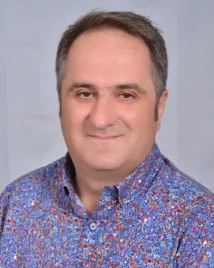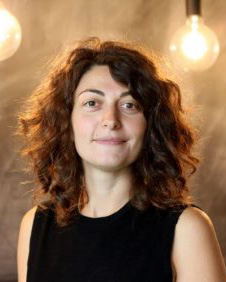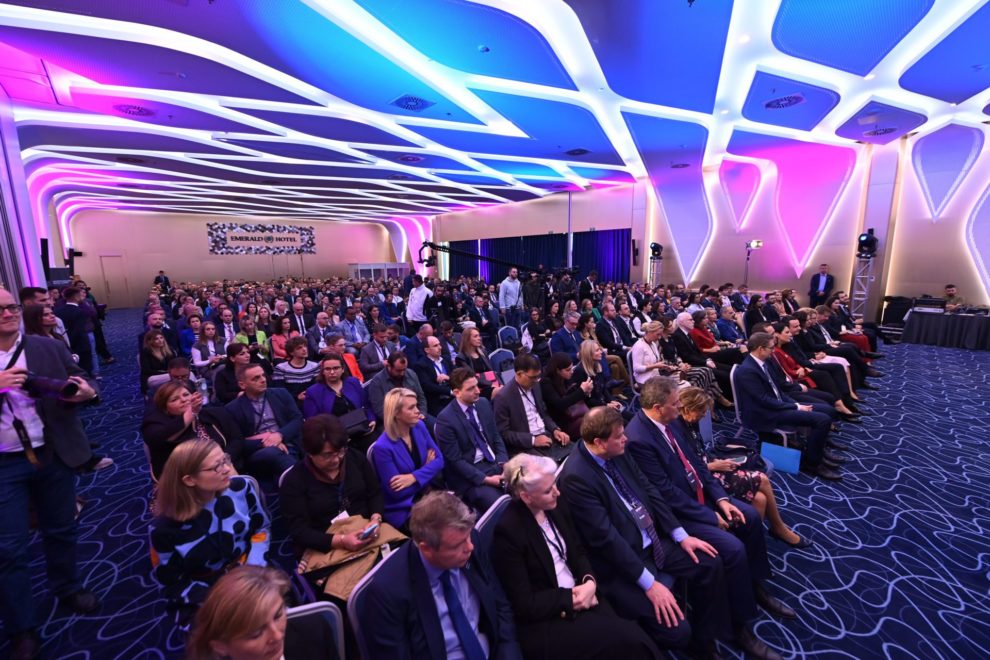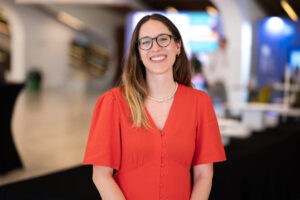

Authors: Anastas Mishev, MARNet/UKIM and Marina De Giorgi, GÉANT
On May 17 2018, at the Digital Assembly in Sofia, Bulgaria, the European Commission launched the Digital Agenda for the Western Balkans. This aims to support the transition of the region into a digital economy and bring the benefits of digital transformation, such as faster economic growth, more jobs, and better services.
Part of the agenda is organizing the Western Balkans Digital Summit (WBDS), each year in different members capitals. This year the WBDS was organized in Pristina, with 1300+ participants on the 21st and 22nd of September. The event covered topics such as Digital Skills, Digital Infrastructure, Cyber Security, Digital Economy including B2B, and Robotics Competitions.
On the first day of the summit a panel was organized and hosted by GÉANT named “Key to enabling Digital Excellence in the region: NRENs”, with the focus on “the importance of GÉANT in bringing together NRENs community and much more”.
The panelists were:
- Anastas Mishev, GÉANT Southeast European Coordinator. He is a former member the board of MARNet, where he is also a GÉANT GA representative.
- Tryfon Chiotis, head of the GÉANT Project Management Office (PMO) responsible for the day-to-day management and administration of the various iterations of the GÉANT project.
- Fjolla Restelica Ahmeti, head of the KODE Project Implementation Unit, implementing KREN. She coordinates all key activities under the Project, with a particular focus on Digital Inclusion component.
- Goran Škvarč, CEO Advisor for cooperation with public administration at the Croatian Academic and Research Network CARNET.
After the brief introduction of what GÉANT is and with NRENs across the globe it forms an inseparable unity, each panelist gave a short introduction of their organisation. Goran presented the development of CARNET, one of the biggest NRENs in South East Europe, which went from being a small group of network enthusiasts to an organisation of several hundreds of employees, supporting tens of thousands of users in Croatia.
Fjolla presented the newest NREN in Europe, KREN, and informed the audience about its journey from its beginning until the establishment of the hybrid cloud solution data center for the academic community as well as the connection of almost all Higher Education Institutions of Kosovo*[1] to KREN’s network. KREN’s mission is to empower digital transformation in the research and education community, foster innovation and develop an infrastructure as well as advanced services. Kosovo’s NREN is being supported through the KODE project implemented by the Ministry of Economy and supported by the World Bank. She also mentioned the vital support that KREN has been receiving from GÉANT and NRENs community, in particular from CARNET. KREN is now delivering services to its members. Since their data center is based on Microsoft Azure, KREN can already offer a range of different to the national HEI community. Moreover, some HEIs are already using Moodle through KREN.
And finally, Tryfon presented the role of GÉANT as an association of NRENs supporting its constituents. He also stressed the importance of the collaboration platform that GÉANT provides, called the GÉANT Community Programme, enabling ideas exchange between NRENs, international organisations as well as private companies. This remark circles back to Goran highlighting the key role of collaboration among NRENs and how NRENs can help each other by sharing their experiences and know-how. The collaboration between CARNET and KREN is an excellent example of how a mature NREN can significantly shorten the implementation curve of an emerging one. The Community brings together the brightest minds together to collaborate virtually and accelerate research, drive innovation, and enrich education.
Tryfon explained how access to online resources and services has become crucial to students, researchers, educators for collaboration. To that end, GÉANT together with NRENs develops and delivers solutions for trusted digital identities based on secure technologies. eduroam is the global Wi-Fi roaming service for research and education communities. An example is MyAcademicID available in tens of thousands of locations across 100+ territories around the world. The service is funded by the European Commission in the context of the European Student Card initiative and enables students to authenticate for their studies abroad using their home student account thanks to eduGAIN, connect their academic identities with their identities as natural persons thanks to the bridge with eIDAS national nodes and enable the once-only principle by introducing the European Student Identifier combining both eIDAS and eduGAIN for the authentication on e-services related to the Erasmus+ programme. Supporting students in the Erasmus programme is a priority for national NRENs and gives them the opportunity to continue expanding the reach of federated access and eduGAIN services.
At the closing of the panel discussion, Fjolla mentioned what is ahead in the future of KREN. They are focusing on expanding the portfolio of its services to the community of research while looking in the longer term to connect all primary and secondary education institutions of Kosovo* and provide them with access to GÉANT resources. Fjolla also mentioned their interest to take part in the GÉANT project in terms of expanding the GÉANT infrastructure in the region and have a point of presence in Kosovo* in the future.
With a crowded room of about 30 participants, the panel raised significant interest from the audience and provoked an extensive discussion. In the audience, among others there were participants from various Kosovo* Universities (University of Prishtina, University of Prizren, Kolegji Riinvest and more). Attending the discussion there were also representatives from the European Commission who asked about current usage of the the existing infrastructure for research and education purposes in Kosovo*. The panel also received questions from the representative of the Ministry of Education of Kosovo* about the collaboration with other initiatives such as EuroHPC, EOSC, open science and their lessons learned and how they can be implemented in other regions of the world.
Panelists mentioned that GÉANT is not just connectivity and infrastructure for e-science, but it stands as a positive example of European integration and collaboration.
Overall, a very successful and insightful panel. We hope to see more of these exchanges soon!
[1] * This designation is without prejudice to positions on status, and is in line with UNSC 1244 and the ICJ Opinion on the Kosovo Declaration of Independence







